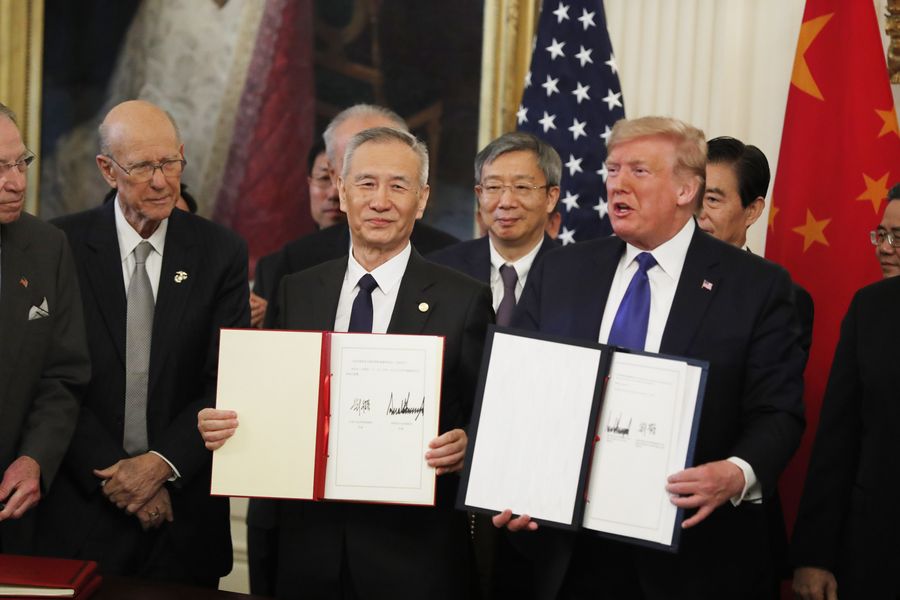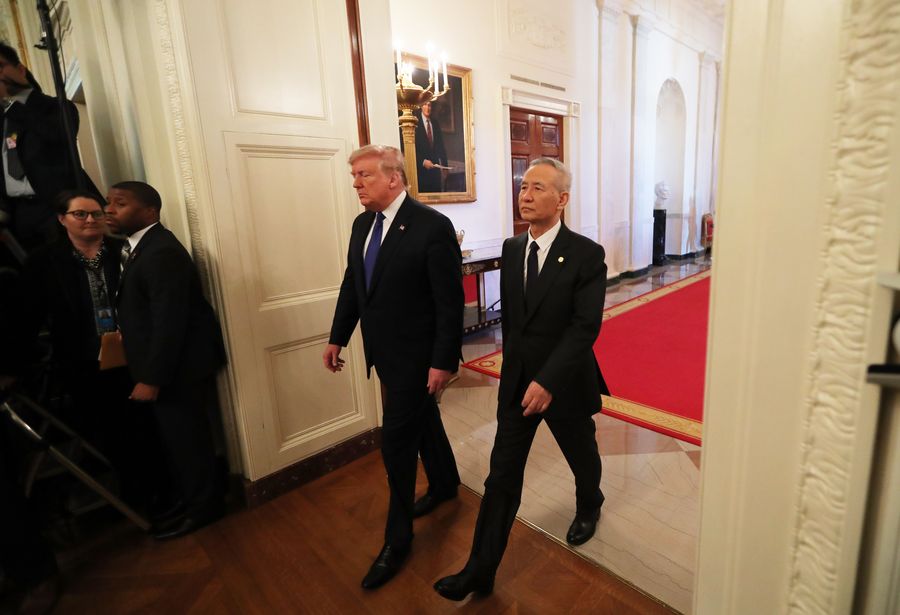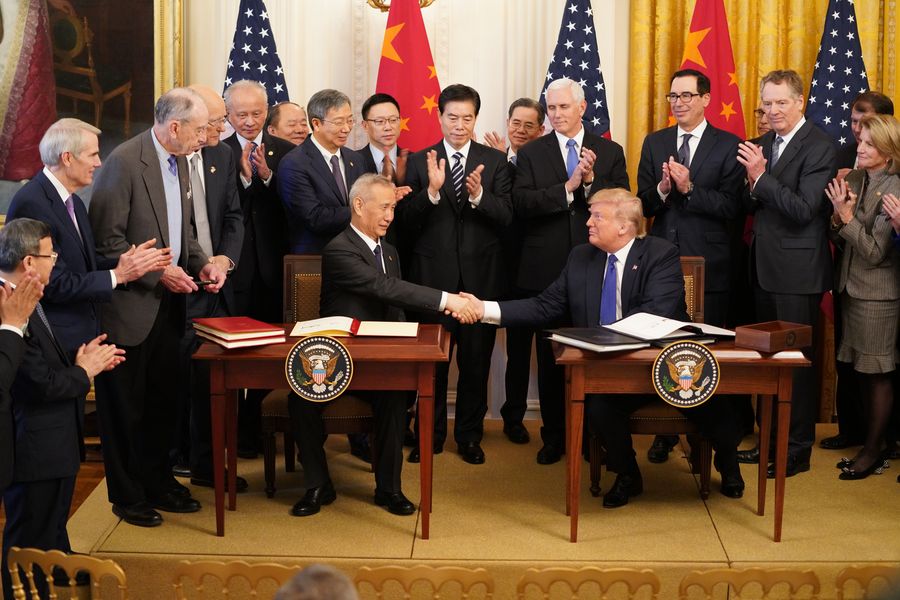
U.S. President Donald Trump and Chinese Vice Premier Liu He show the signed China-U.S. phase-one economic and trade agreement during a ceremony at the East Room of the White House in Washington D.C., the United States, Jan. 15, 2020. (Xinhua/Li Muzi)
It is "a foundation upon which we can build, and it allows both governments to begin a new phase in the overall bilateral relationship," and will "give us an opportunity to better manage those other risks in a more collaborative and friendly and constructive manner," according to U.S.-China Business Council President Craig Allen.
by Xiong Maoling and Hu Yousong
WASHINGTON, Jan. 20 (Xinhua) -- The China-U.S. phase-one economic and trade agreement will not only benefit the U.S. business community but also support China's economic growth in the next decade, U.S.-China Business Council President Craig Allen told Xinhua in a recent interview.
China and the United States formally signed their phase-one economic and trade agreement in Washington last week, defusing tensions between the world's two largest economies after nearly two years' strenuous negotiations.
There is a lot of "excitement" in the U.S. business community, said Allen, who was among those invited to attend the signing ceremony.
The agreement covers issues that range from expanding bilateral trade in such sectors as agricultural products, manufactured goods, energy and service, to further broadening market access and enhancing the protection of intellectual property rights.

U.S. President Donald Trump and Chinese Vice Premier Liu He arrive at the East Room of the White House for the China-U.S. phase-one trade deal signing in Washington D.C., the United States, Jan. 15, 2020. (Xinhua/Wang Ying)
In the deal, the U.S. side has pledged to cancel some of its additional tariffs on Chinese products, marking a policy change from hiking to cutting additional tariffs.
The two sides have also agreed to further broaden market access, including further opening up of each other's financial markets, in order to provide more opportunities for both Chinese and U.S. businesses.
"It gives me great joy that this is an agreement that is both good for the Chinese side and good for the American side," said Allen, who leads a nonprofit organization of about 200 U.S. companies that do business with China.
He said the deal will grant U.S. insurance, banking, securities and payments companies improved access to the Chinese market, thus the allocation of capital within China can be "greatly improved."
"I think that all elements of this trade deal are going to help sustain economic growth in China for the foreseeable future," he added.
The business leader spoke highly of the agreement, saying it is "a foundation upon which we can build, and it allows both governments to begin a new phase in the overall bilateral relationship."

U.S. President Donald Trump and Chinese Vice Premier Liu He shake hands after signing the China-U.S. phase-one economic and trade agreement during a ceremony at the East Room of the White House in Washington D.C., the United States, Jan. 15, 2020. (Xinhua/Wang Ying)
Furthermore, it will "give us an opportunity to better manage those other risks in a more collaborative and friendly and constructive manner," he said.
Allen said he hopes the two countries can "maintain positive momentum going forward" until they eventually remove all the additional tariffs.
Beijing and Washington have engaged in trade negotiations for nearly two years. Despite overall stable economic growth in both countries, Allen said he does worry about a drop-off in tourist visas, displacement of some American exports into China, and a decline in Chinese investment in the United States, "which we need."
Allen, who served as commercial attache at the U.S. Embassy in Beijing in the 1990s, said the two countries have been economically integrated over the past 40 years.
"We have so much to learn from each other and so much to gain from interconnectivity, mutual investment, collaboration across technological fields. The last 40 years have been incredibly fruitful in those areas," he said. "How about the next 40 years?" ■



